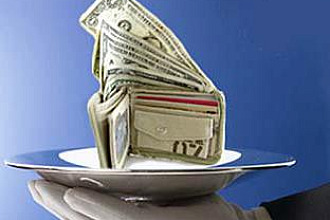The strikes at both the American and the world economy keep coming. According to the February 2013 issue of The Week magazine, 44 percent of Americans do not have enough in their savings accounts to cover basic expenses for 90 days if financial emergencies were to occur such as one spouse losing a job, or an unexpected medical expense. Regrettably, almost 30 percent of Americans have zero savings for those unforeseen circumstances.
At one point in our country, we Americans valued savings. In fact, the cornerstone of our financial planning is to provide for our family enough savings for a rainy day situation or a sunny retirement, or both. Until a decade ago most personal savings rarely fell below 10 percent, but since the height of the 2008 recession that number has been consistently less than 5 percent. Unfortunately, this is one of the lowest in the developed world. (Compared to China with an average of 30 percent).
We have a long list of what we consider reasonable and rational excuses for why we have financial fatigue when it comes to savings—simple things as the irresistible urge to buy new technological gadgets or neglecting to brownbag a couple of days a week become part of the challenge. The bottom line is that in our monetary DNA we are accustomed to "living beyond our means."
However, the good news is you and I can save, but it depends on whether or not we make it a priority.
Some of the reasons why we don't save and how these patterns can be turned to building blocks in reestablishing a consistent savings plan are discussed below.
Make Saving a Priority
Some saving goals are far too big. So big, in fact, that they are over the next mountain—impossible to reach and easily forgotten. The best method in planning your saving goals is to make them realistic, definite, and measureable. An example of this would be: "Save $50 each pay period next year to pay for a family vacation in advance." It may mean changing your economic lifestyle and making saving a higher priority than spending.
Make Saving a Habit
God's creatures set an example in making it a habit to store up food in the summer, for they know winter comes with a shortage of food. Watching the busy ants on the shores of the Mediterranean Sea, King Solomon remarked, "Go watch the ants, you lazy person. Watch what they do and be wise...They store up food in the summer and gather their supplies at harvest." (Prov. 6:6-8 NCV). Ellen White reminds us, "Every week you should lay by in some secure place five to ten dollars not to be used up unless in case of sickness."
Getting into the habit of saving is valuable—Gladys Holm is an excellent example. In her whole life she never earned more than $15,000 a year but when she died at the age of 86 she left an astonishing $18 million bequest to a Chicago children's hospital. Her secret was to save a small amount each month and invest in the stocks that her employer was investing in. Over the decades, with great stock picks and the wonder of compound interest, she died a very wealthy woman.
Make Saving Automatic
One of the easier ways to save is to have a certain amount automatically deducted from each paycheck and deposited to your savings account.
Over 90 percent of working individuals in European countries and over 70 percent in Great Britain make this a regular practice. In the United States, however, only about 40 percent of employees take this option.
For over 20 years my wife and I have arranged with our local bank or credit union for automatic drafts to be taken from our joint checking account to pay our mortgage, car loans, utilities, insurance, etc. You may ask what this has got to do with saving. It will save you a lot of worry by making sure your accounts are paid on time, sparing you the costs of late fees and postage which can add up to a considerable amount over time.
Make Saving Emotional
Businesses long ago learned that successful advertising engenders an emotional connection. Imagine that you are driving down the road. You see a billboard promoting a new vehicle and it sparkles with these words: "You don't park it, you display it." Compare this with a bank slogan that says, "Place your money in a savings account—it's a smart thing to do." Obviously, the vehicle mantra speaks to your heart and soul while the savings slogan, although accurate and sensible, touches no emotional chord. You and I need a captivating and persuasive goal to turn from not saving to truly enjoying building up savings for a rainy day or for that sunny retirement!
And what if the savings catchphrase was: "Saving $100 today will save your marriage tomorrow?" Financial problems are significant factors that lead to stress in marriage and one of the leading causes in a majority of divorces. Knowing this, couples should happily and energetically embark on a regular and consistent savings plan.
Remember that a good savings plan in place moves you step-by-step away from the edge of financial stress and ruin—allowing you to have a better sleep and to enjoy life at its best!

_medium.jpg)
























